Samsung’s One UI Home is not a spy app. Privacy is one of the most prominent and contested issues in digital technology, and Samsung acknowledges this.
With each app comes the fear of personal data being surveilled, collected, and potentially misused. But fear not, as we will not only let you know about One UI Home, but our goal is to guide you on how to find hidden spy apps.
“A recent survey found that 67% of smartphone users worry about apps collecting their data without permission.“
Gemini – AI powered by Google
Smartphone interfaces are more than just app designs; they are the methods through which we interact. They are often the silent observers of our digital lives.
Samsung’s One UI Home, a central feature of its smartphones, has started debates about its role in user privacy. People started to think, “Is One UI Home safe?”
This blog post examines One UI Home to determine whether it’s a gentle system that efficiently personalizes our mobile experience (Its real function) or a spy silently monitoring our every digital activity (Which some People think it is).
Understanding Spy Apps
Before jumping to conclusions, defining what makes an app a spy app is important. A spy app, or ‘stalkerware,’ is software installed on a device—often without the user’s consent or knowledge.
It intends to spy on the device’s activity, such as messages, calls, and browsing habits. Characteristics of spy apps include secretive installation, hiding from users, and transmitting data to third parties.
What sets spy apps apart is the hidden nature of their activities. They operate under the guise of legitimate software, often with a functionality that’s hard to distinguish from normal system behavior.
Consequently, they are challenging to detect and even harder to remove.
Now that we have a baseline, we can shift our focus to One UI Home and its actual features.
Exploring One UI Home
One UI Home is the best launcher for Samsung phone’s privacy. This software is responsible for Galaxy devices’ home screen and app drawer. Designed to focus on one-handed usage, it organizes content elegantly and intuitively.
One UI Home data collection features are created in such a way as to learn user behaviours, tailor experiences, and foster productivity to make it more user-friendly.
The permissions required by One UI Home are not dissimilar from those demanded by other launchers; access to storage, contacts, and other system resources are par for the course.
One UI Home also has multiple built-in privacy features, such as secure folders and the option to lock individual apps, further enhancing user control and privacy.
Moreover, Samsung has a strict policy against pre-installed bloatware, allowing users to disable any unwanted system apps.
However, this is where privacy concerns come forward.
Samsung Privacy Policy:
Samsung and all its by-products follow the same privacy globally, and it doesn’t change for any of its applications.
“Samsung Co., Ltd., and our affiliates (“Samsung Electronics”, “we”, “us”, “our”) know how important privacy is to our customers, and we strive to be clear about how we collect, use, disclose, transfer, and store your information.”
User Experiences and Reviews
A glimpse into user experiences and reviews is important to understand how Samsung One UI Home. Community feedback often serves as an early warning system, flagging issues and concerns that official channels might overlook.
User reports vary widely. While some express concern over privacy because they don’t know about the app’s privacy policy, others favor One UI Home, citing its performance and ease of use. But after reading this article, you can answer, “Is One UI Home a spy app?”.
How to check any app?
Almost the same methods apply to check all the apps. A quick peek at One UI Home’s permissions reveals no threat, with nothing unusual for a launcher. It works in the same way as other launchers work.
Apps requesting sensitive permissions are subject to Google’s Play Protect vetting process, and Samsung devices run these checks every time an app updates or is installed.
If you still want to ensure your privacy, the Following is a simple process that can be used on any Android system (Steps may differ according to your Andriod device):
(These steps are shown on the Redmi Note 11 device)
Step 1: Open “Settings” on your Android.
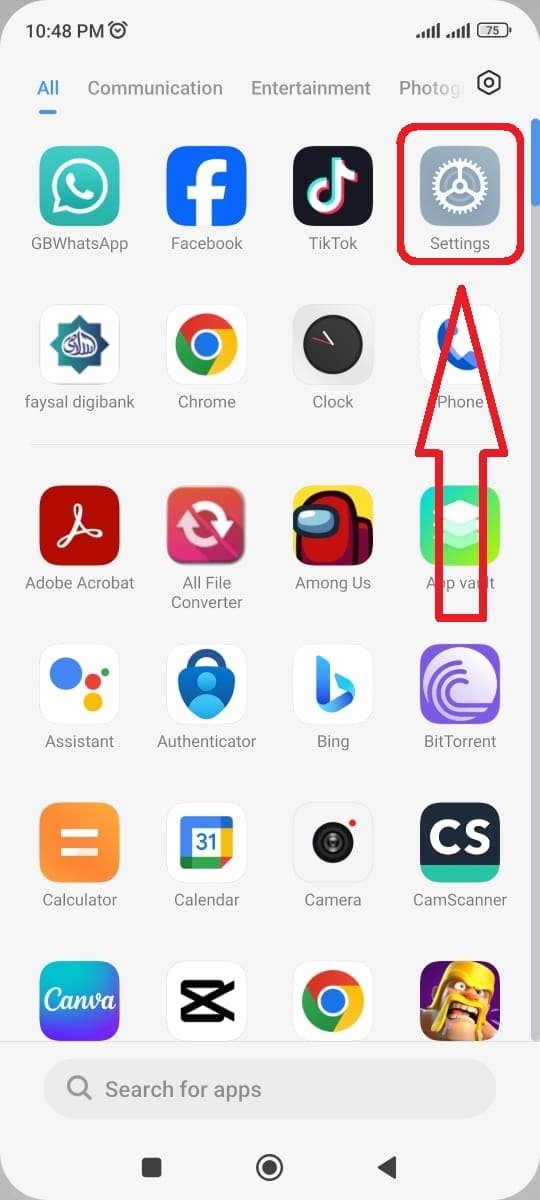
Step 2: Navigate to the “Apps” in settings.
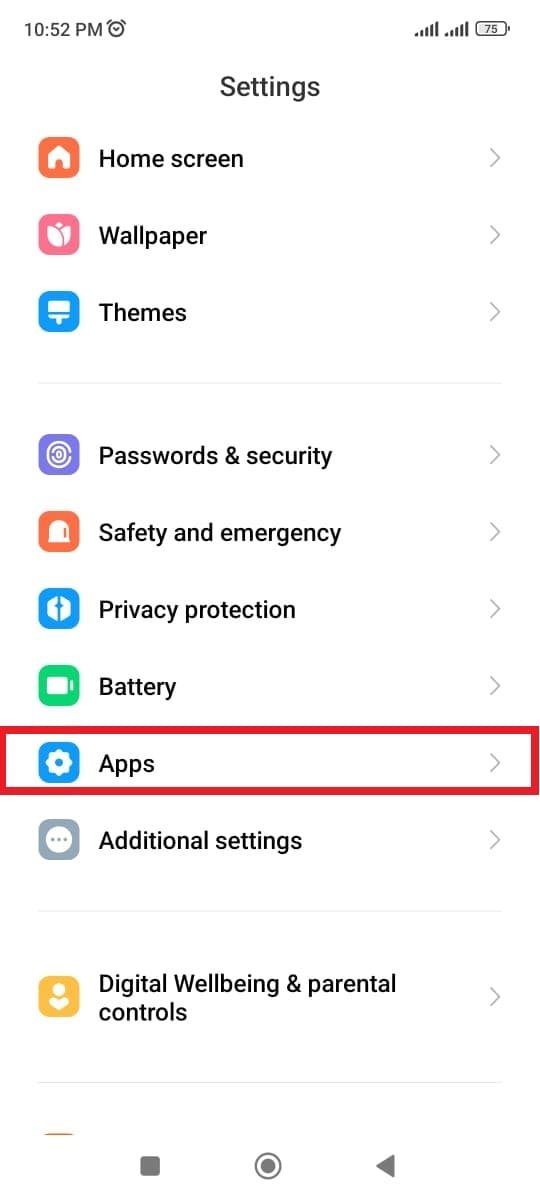
Step 3: Click “Manage Apps“
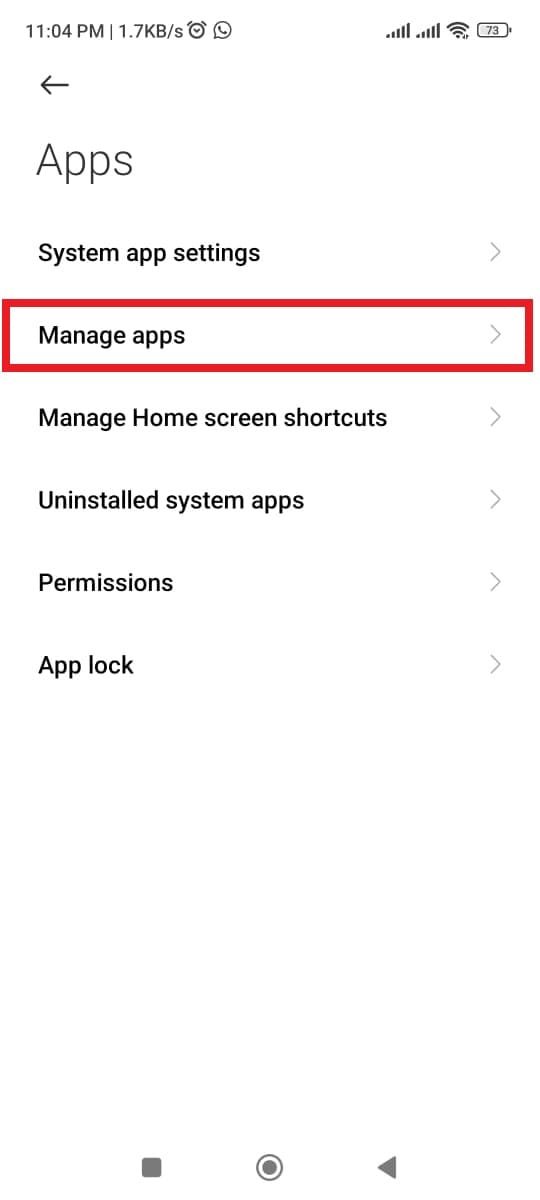
Step 4: In the Manage Apps window, select the app you want to check. (I’m checking the Chrome app)
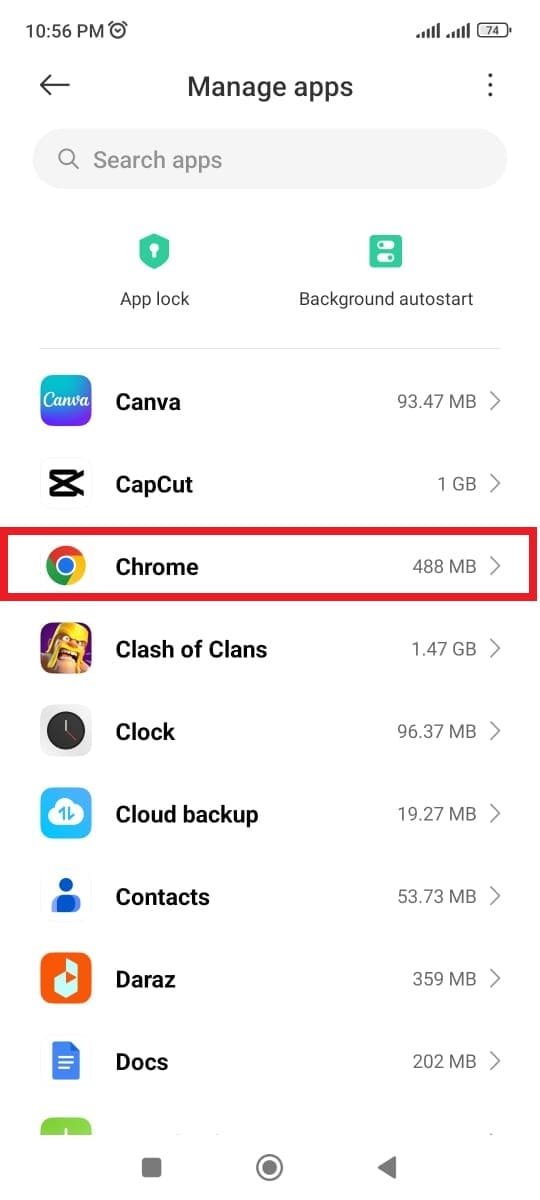
Step 5: In the “App Info” tab, click “App Permissions.”
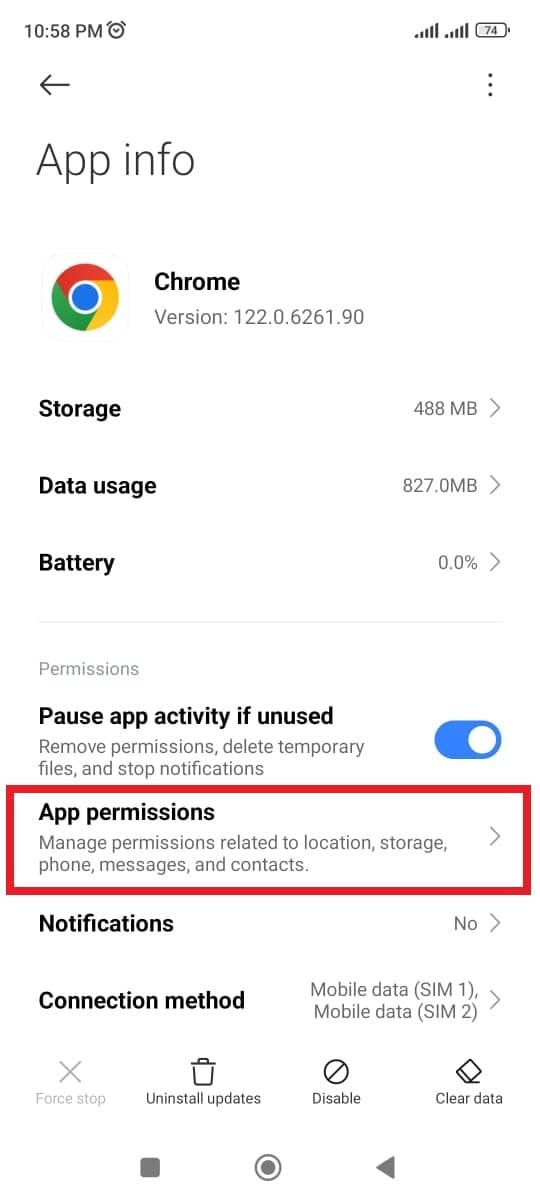
Step 6: Check the “Allowed” and “Not Allowed” functions in the App Permissions Menu.
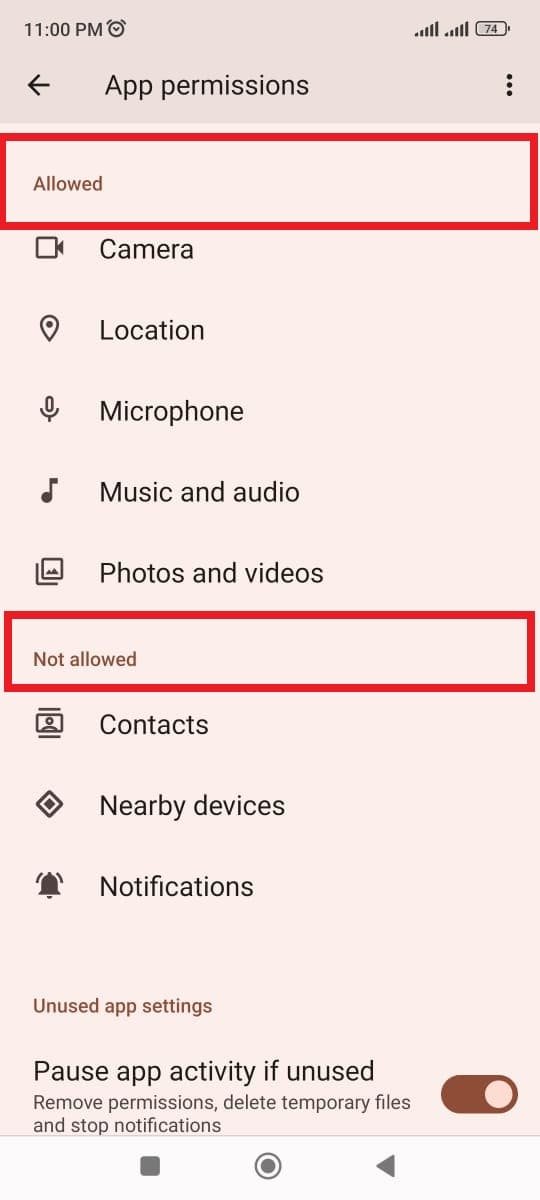
In this way, you can inspect any app. These general steps can be applied to every app. You can review and manage app permissions for One UI Home like any other app on your device.
Bonus:
Addressing Privacy Concerns
Data collection is integral to any service attempting to customize and improve the user experience. One UI Home can, therefore, be expected to gather certain data to deliver an ease of personalization.
However, the line between necessary data for improvement and invasive practices is thin. It is important to understand Samsung’s data collection policies and ensure users have enough control over their information.
According to Samsung’s official statements, data collection is not intended to compromise user privacy. Yet, the absence of strong security features can create uncertainty among their users.
This lack of concrete assurances often leads to the perception of overreach and hidden agendas.
Disclaimer:
This blog post is informational and does not constitute professional security advice. Always prioritize your privacy needs and conduct your research.
Conclusion
The debate on One UI Home’s privacy implications is multifaceted. On one hand, its functions are critical to the smooth running and personalization of user experiences.
On the other hand, the lack of transparency about its data practices can be disconcerting for some users.
Without evidence, no one can simply brand One UI Home as a spy app. It depends upon users, tech enthusiasts, and privacy advocates to engage with service providers, such as Samsung, to demand and ensure the highest standards of transparency and control.
The path forward involves more meaningful dialogues between users and developers and clearer privacy policies. Most importantly, platform strictness towards privacy policy can withstand the risks of a hyper-connected world.
As we continue integrating technology into our lives, a balance between innovation and privacy must be maintained. It’s not just Samsung but every tech company that owes its users the comfort of knowing that their digital assistants are not simply helping them but also genuinely listening.
Can I review and manage app permissions for One UI Home?
Yes, you can review and manage app permissions for One UI Home like any other app on your device. You can do so by following a few simple steps under the “App Permissions” menu in your device’s settings.
Should I be concerned about my privacy while using One UI Home?
While data collection is necessary for improving user experience, the lack of transparency about One UI Home’s data practices can be concerning for some users. However, Samsung has stated that their data collection is not intended to compromise user privacy.

